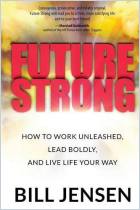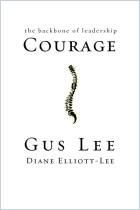Join getAbstract to access the summary!

Join getAbstract to access the summary!
Ryan Berman
Return on Courage
A Business Playbook for Courageous Change
Greenleaf Book Group, 2019
What's inside?
Find the courage to take smart risks so your firm survives the volatile, disruptive 21st century.
Recommendation
Ryan Berman, now a consultant, found his personal courage after he was fired from an advertising job he had held for six years. He opened his own advertising firm to great success. Berman attributes much of his good fortune to having had the courage to take calculated risks and to change quickly when required. Most people resist taking risks, he says, but anyone can learn to act courageously through practice and training. Courage comes through preparation. When you study an issue, build up your knowledge, ask questions and experiment before committing, you display what Berman calls “business courage.” His arguments for courage as a competency add to the business genre, yet he also dips into platitudes and familiar advice. Most businesspeople will benefit from his thesis that employees can learn to take sound risks and embrace change if their leaders encourage them to be courageous participants rather than conforming ciphers.
Summary
About the Author
Ryan Berman founded Courageous, a consultancy that teaches major brands to use courage as a competitive advantage. He also founded Sock Problems, a charitable sock company that supports causes around the world by “socking” problems and spreading awareness.


















Comment on this summary